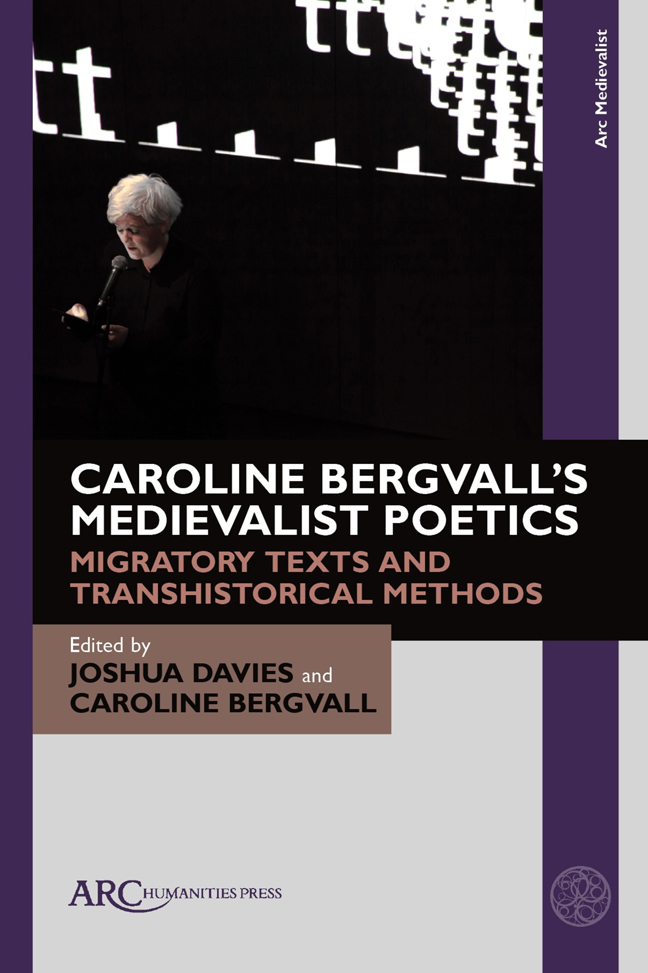Chapter 27 - Interview with Susan Rudy (2010)
Published online by Cambridge University Press: 20 February 2024
Summary
Susan Rudy: Can we talk about the new work you’ve been doing under the rubric “Middling English”?
Caroline Bergvall: Yes, sure. The John Hansard Gallery at the University of Southampton invited me to do a new piece of mine called “Middling English.” The John Hansard is a very good, internationalist, regional gallery. It has a solid reputation for being quite intellectual and political, and they’re very broad when it comes to the media they’re interested in, but they haven’t done a writing show in this way before. The show opened in September (2010).
SR: Is it the same “Middling English” which appeared in a quotation on a wall in the Say: “Parsley” installation at the Arnolfini Gallery in Bristol?
CB: “Middling English” has become a sort of template of thoughts and methods behind the John Hansard installation project. More largely, it is a poetic essay and manifesto, one that supports my writing as a whole at the moment. I’ve been writing this piece for the past year or so. The final version of it is forthcoming in my collection of selected texts, Meddle English. It wants to be polemical and starts really by saying, let’s think about the medium of English. It has Middle English as a starting point.
SR: Is it related to your Chaucer work, then? To Alyson Singes (2008)?2
CB: Yes, its starting point was the Chaucer work. But it’s also working its way to reflect-ing on other hybridized language use, and what I consider to be the role of the writer today. It explores the residues from the past contained by language. It then looks at a language in full transformation, Middle English, at the beginning of its own identity as a compound of French, Latin and Old English, etc., and ends up speculating about the Englishes of today, again in full flux, after a long historical period of domination—also linguistic domination, by way of trade notably, and colonial politics of dominance and occupation. I’m interested in thinking about the various horizons of English, what kind of language is there, what kind of world it is signaling now, what is coming after it.
SR: You were talking at lunch about seeing yourself as a writer of the future. Can you speak a bit more about that?
CB: What I meant was twofold.
- Type
- Chapter
- Information
- Caroline Bergvall's Medievalist PoeticsMigratory Texts and Transhistorical Methods, pp. 203 - 208Publisher: Amsterdam University PressPrint publication year: 2023



